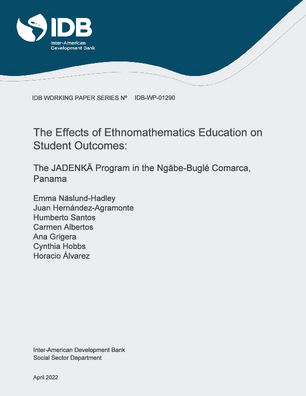The effects of ethnomathematics education on student outcomes: The JADENKÄ Program in the Ngäbe-Buglé Comarca, Panama
Date
Apr 2022
The aim of this article is to provide rigorous at scale experimental evidence on the effectiveness of an ethnomathematics education program. This article describes and evaluates the impact of JADENKA (pronounced Ha-den-go), an intercultural bilingual mathematics program designed to increase the mathematical and ethnomathematical skills of the Ngabe preschoolers, within the comarca Ngabe-Buglé in Panama. To our knowledge, this is the first study to evaluate the effectiveness of an ethnomathematics intervention in preschool education through an RCT. The program was designed by a team of experts in early mathematics pedagogy, Ngabe mathematics and language, Interactive Radio Instruction (IRI) methodology , as well as Ngabe actors and singers. Our results indicate positive effects of the program on the mathematical and ethnomathematical skills of students. The magnitude of the impact on mathematics (0.12-0.18 s.d.) is comparable to other bilingual and intercultural bilingual education preschool mathematics programs implemented in low- and middle-income countries.




